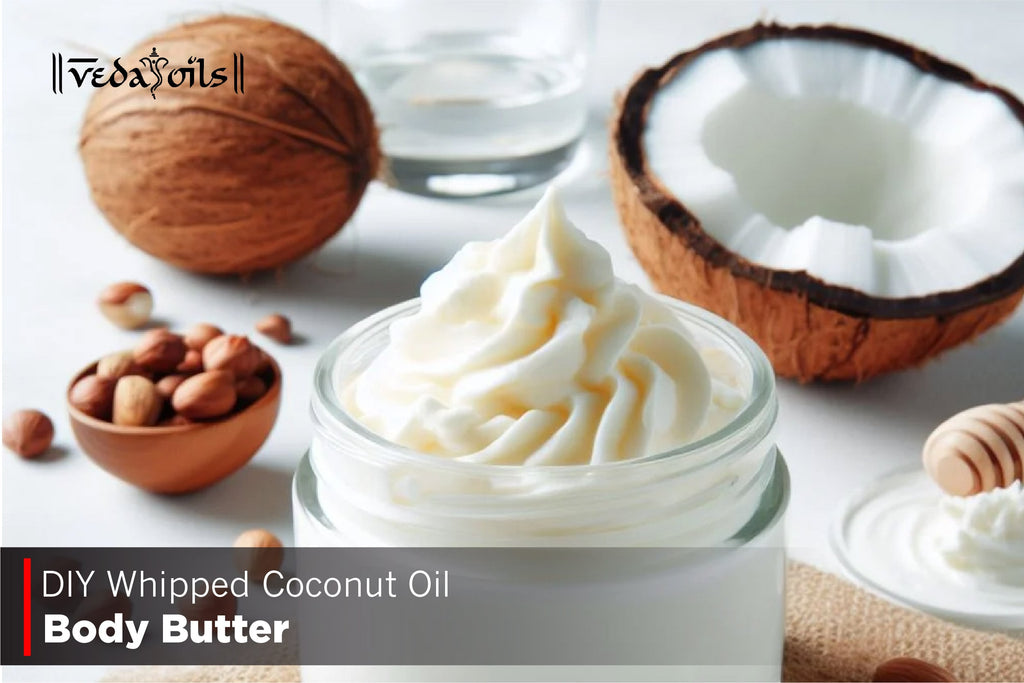Olive oil and almond oil are both promoted as skin-friendly oils. But if you had to pick one, which one would you choose? Almond and olive oils both have vital nourishing and moisturizing qualities. Because of this, it is impossible to give a definitive answer to the question, "Which is better, almond oil or olive oil?" Instead, we will compare some of the skincare benefits of olive oil vs almond oil to see which is best for you.

What is Olive Oil?
Olive oil is excellent for your skin and hair. Whole olives are pressed to extract this oil. Antioxidants, vitamins E and K, monounsaturated fatty acids such as Omega 3 and Omega 6, and carotenoids are all abundant in olive oil.
What is Almond Oil?
Almond oil is a gentle and calming oil that has numerous beautifying properties. The scent is wonderful. Cold pressing is the procedure used to extract almond oil from raw almonds. Almond oil is a good source of protein, minerals, omega fatty acids, vitamins A, B, and E.
Difference Between Olive Oil and Almond Oil
The effects of almond and olive oil vary depending on your skin or body type. Vitamin E is abundant in almond oil, it is also a fantastic source of copper, magnesium, and phosphorus. The antioxidant-rich oil is renowned for its capacity to combat free radicals.

It also reduces inflammation and strengthens immunity. Olive oil is high in vitamins and antioxidants, and studies have shown that it improves skin hydration, has anti-aging properties, and protects against sun damage. Therefore, whether almond oil or olive oil is better for your skin depends completely on your skin type. Read on to know more.
Olive Oil vs Almond Oil for Hair
As was already discussed, knowing your hair type may help you achieve the greatest results. Almond oil, however, is appropriate for all types of hair because of its component that softens hair. Olive oil helps to keep the hair moist in a dry environment thanks to its high omega fatty acid content.

How to Use
You can use almond oil/olive oil twice per week for a few months to massage your scalp and hair. After applying you can soak a towel in hot water, squeeze out the extra moisture, and then wrap it tightly over the head. Keep this on for around 30 minutes before washing it off with a suitable shampoo.
Almond Oil vs Olive Oil for Skin
Both almond oil and olive oil are equally important when it comes to beauty. Almond oil is more well-known due to its pleasant aroma and abundance in vitamins A and E. Olive oil, on the other hand, works well as a moisturizer and aids in softening your skin.

How to Use
As normal, wash and pat dry your skin. Then, using your fingertips, gently apply a small amount of almond oil/ olive oil onto your skin, about the size of a cent, and let it absorb. No rinsing is necessary if you're using it as a moisturizer.
Olive Oil vs Almond Oil for Face
Who doesn't desire a glowing face? By utilizing almond or olive oil, you can achieve natural fairness. Almond oil moisturizes the face while also containing vitamins A and E. Olive oil also naturally improves your skin tone. Therefore, either of these oils can be used for this.

How to Use
Wash your hands thoroughly, then warm up a few drops of almond oil/ olive oil by rubbing your palms together. Use this oil to massage your face. After that, wash your face gently with a facial cleanser. Once more, apply a few drops of almond oil/ olive oil to your face and go to sleep.
Olive Oil vs Almond Oil for Dark Circles
Many people lament having black circles beneath their eyes. Application of a coconut oil and almond oil mixture is the most efficient way to minimize it. Olive oil and coconut oil can also be combined. Almond oil is favored to be used as an overnight treatment for dark circles, though, due to its mild nature.

How to Use
Take half a teaspoon of almond oil/ olive oil and apply it sparingly on your eyelids and under-eye area. Circular massage for two minutes. After leaving it overnight, rinse it with plain water the next morning.
Almond Oil vs Olive Oil for Baby Massage
Almond oil is a fantastic choice for infant massage because it is packed with important nutrients like Vitamins A, B1, B6, and E. Because it is so light, it quickly absorbs into your baby's skin, leaving it feeling smooth and velvety.

Although it has a few drawbacks, olive oil is still a good alternative for beginners. Olive oil contains a lot of oleic acid, which makes the skin more permeable and could dry out your baby's skin. If your baby's skin is particularly sensitive, you should avoid using olive oil.
How to Use
Rub your hands together after applying a small amount of olive/almond oil to your fingers and palm. Slowly sooth and rub your baby's skin, starting at the stomach and chest region.
Before moving on to the next region, spend between 30 and 60 seconds there. Keep rubbing your child's legs, feet, arms, shoulders, and neck. Repeat the massage on your baby's back after turning them to their stomach.
Olive Oil vs Almond Oil For Stretch Marks
Almond oil is a fantastic beauty element since it contains high levels of fatty acids including linoleic acid and oleic acid as well as vitamins A, B2, E, and F. Stretch marks are reduced thanks to its ability to hydrate, mend, and cure damaged cells. Olive oil is full of the minerals and antioxidants the skin needs to be nourished and heal damaged skin cells. Olive and almond oils are both advantageous for minimizing stretch marks.

How to Use
Take the oil of your choice be it olive oil or almond oil and massage the stretch marks for 15 minutes in circular motions. Before rinsing the mixture off, let it remain on your skin for another 30 minutes. For better results, repeat the application every day.
Almond Oil vs Olive Oil For Body Massage
Almond oil is beneficial for body massages since it has several components that keep the skin soft and elastic. Many people also use olive oil, although typically they combine it with another essential oil. Therefore, whether you choose almond oil or olive oil will largely depend on your needs and goals.

How to Use
Warm up half a cup of almond/olive oil first since warm oil absorbs better into the skin. Start massaging your body parts one by one. You have to allow the oil to stay on your skin for a while.A massage is best done right before bed because it relaxes your body and promotes sound sleep. Additionally, doing so enables the oil to penetrate into your skin overnight.
Almond Oil vs Olive Oil - Which is Better?
Both olive and almond oils are used in moisturizers, lotions, and cleansers because of their well-known advantages for the skin. Almond oil is used as a cleaning agent to remove dirt and dust from skin, whilst olive oils can be utilized in antibacterial lotions for skin diseases.

Almond oil also has a significant impact on hair development and problems associated with it. The application and use of both the oils vary depending upon the skin type, use and condition. Hence, there is no single answer to the question as Which is better?
Precautions Of Using Almond Oil And Olive Oil
Almond oil is typically regarded as safe for topical use. Almond oil has several advantages for oily skin because it is light and easily absorbs into the skin without clogging pores. When using it for the first time, a patch test can be used to screen for any allergic reactions.

Olive oil, on the other hand, should not be used on skin that is greasy, sensitive, or prone to acne. Olive oil is mildly comedogenic and can clog skin pores, therefore people who are allergic to it may develop adverse responses. Sensitive skin types may get a rash and turn red.
Conclusion
Essential ingredients that maintain the hydration and nourishment of your skin are present in both almond oil and olive oil. Both the oils can have negative effects, however these depend on how your skin or body responds to them. VedaOils is a leading manufacturer of pure and organically pressed almond oils and olive oils. If you are looking to place bulk orders at discounted rates you can place it from their website.
Frequently Asked Questions
Welcome to our comprehensive FAQ section on Difference Between Olive Oil and Almond Oil!
Q.1 Is olive oil and almond oil the same?
Ans. No, Olive oil and Almond oil are not the same, both are obtained from different sources and henceforth differ in their properties.
Q.2 Which one is better for skin, almond oil or olive oil?
Ans. Olive oil and almond oil both work well for treating dry skin. However, the skin quickly absorbs almond oil.
Q.3 Which one is better for hair, almond oil or olive oil?
Ans. Your hair gets nourishment from almond oil, which also helps it grow. Olive oil, on the other hand, contains omega fatty acids that keep even the driest and frizziest hair hydrated, even in a dry atmosphere.












 Sign in
Sign in Register now
Register now My Reward Points
My Reward Points









